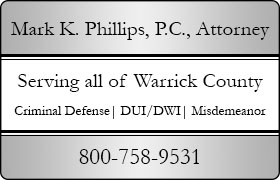Pike County, IN Criminal Lawyers
Sponsored Law Firm
-
 x
x

Click For More Info:
-
Law Offices of Mark K. Phillips
114 South Third Street P.O. Box 427 Boonville, IN 47601» view mapDUI-DWI, Criminal Defense, Personal Injury Top Rated Indiana DUI Defense Lawyer
I offer passionate, loyal and fierce representation. I have over 20 years of experience to fight your Indiana DUI charge. I offer a free, initial consultation.
800-291-416 -
- Contact
- Free Consultation
- Visit:
- Website
- Profile
Not enough matches for Pike Criminal lawyer.
Below are all Pike lawyers.
Kerry Allen Aldridge
Juvenile Law, Other, Divorce & Family Law, Criminal
Status: In Good Standing Licensed: 18 Years
Brian Keith Mahoney
Other, Real Estate, Government, Business
Status: In Good Standing Licensed: 36 Years
Jeffrey Lee Biesterveld
Real Estate, Government, Criminal, Accident & Injury
Status: In Good Standing Licensed: 42 Years
Valentine John Fleig
Government, Estate, Civil & Human Rights, Business
Status: In Good Standing Licensed: 51 Years
Lincoln Avery Baker
Trusts, Estate, Elder Law, Civil & Human Rights
Status: In Good Standing Licensed: 43 Years
 Mark K. Phillips Boonville,Indiana
Mark K. Phillips Boonville,Indiana About UsMark K. Phillips
About UsMark K. Phillips Contact UsCall or Email Now
Contact UsCall or Email Now
